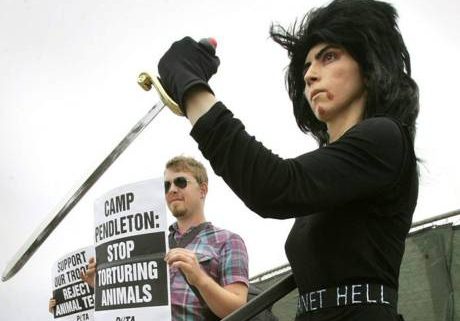Ides of March Terrorist Fits Emerging Profile of the Terrorist
On March 15, 2019, the world suffered another horrifying act of terror as Australian national Brenton Tarrant opened fire with an automatic rifle on unarmed worshippers in two Christchurch, New Zealand mosques, killing at least 49. Tarrant not only filmed the massacre, he posted a 74-page terrorist manifesto as a road map for understanding his ideation and background.
In our Profiles in Terrorism studies, we have distilled a profile of the character traits shared in common by terrorists and assassins spanning the entire spectrum of “causes,” cultural backgrounds, and religious beliefs. Tarrant matches that emerging profile in a large number of aspects. Some of them include —
Lack of formal education. We have noted that terrorists and assassins overwhelmingly tend to be auto-didacts, extensively self-taught while lacking in any significant achievement in a formal school setting. Tarrant fits this key trait, 100%. In his manifesto, Tarrant tells us:
I had little interest in education during my schooling, barely achieving a passing grade. I did not attend University as I had no great interest in anything offered in the Universities to study.
Absence of childhood oppression or trauma. Although Tarrant claims to be from a “working class” family (a claim yet to be thoroughly investigated), his manifesto states that he had “a regular childhood, without any great issues.” This is very typical of terrorists. They are not “victims” of poverty or oppression. Rather, they adopt passionately the perceived cause of others. Tarrant states in his manifesto that his massacre is “taking revenge” for Ebba Akerlund, an 11-year old Swedish girl whom Tarrant never knew or met, who was killed in a Stockholm truck attack on April 7, 2017.
Extensive travel. We have noted that terrorists, prior to adopting their suicidal course of action in support of an adopted cause, often travel internationally. Tarrant states in the manifesto that his terrorist ideation originated in a period of April and May of 2017 when he was travelling as a tourist in Western Europe at the time, France, Spain, Portugal and other unspecified countries. Of his travels, Tarrant writes:
I was treated wonderfully, often as a guest and even as a friend. The varied cultures of the world greeted me with warmth and compassion, and I very much enjoyed nearly every moment I spent with them.
Exaggeration of numbers. In Sofia Perovskaya, Terrorist Princess, we examined the “manual” of Sergei Nechaev, co-author of the chilling terrorist creed, Catechism of a Revolutionary. Nechaev urged the exaggeration of the numbers of terrorist group members by a factor of at least one thousand. Tarrant’s manifesto displays this tenet. He writes of his “groups,”
The total number of people in these organizations is in the millions, the total number of groups in the thousands. People from every walk of life, in every place of employment and field but disproportionately employed in military services and law enforcement. Unsurprisingly ethno-nationalists and nationalists seek employment in areas that serve their nations and community. I would estimate the number of soldiers in European armed forces that also belong to nationalist groups to number in the hundreds of thousands, with just as many employed in law enforcement positions.
Uncritical faith in their own ideas. Terrorists have a loose grip on reality with a strong tendency to dissociation. Part of this leads them to be convinced that their own ideas and methods, no matter how much they are reviled by civilized people worldwide, will eventually win the enduring approbation of history. Tarrant demonstrates this fully when he writes that he expects to be released from prison in 27 years:
I do not just expected to be released, but I also expect an eventual Nobel Peace prize.
Hostility to a political process. We have noted that terrorists generally loathe forms of governance or conflict resolution which involve democratic and pluralistic political processes. Tarrant writes in his manifesto that he was influenced in his thinking by the 2017 French general election:
The candidates were an obvious sign of our times: a globalist, capitalist, egalitarian, an ex-investment banker was no national beliefs other than the pursuit of profit versus a milquetoast, feckless, civic nationalist, an uncontroversial figure who’s most brave and inspired idea resolved to the possible deportation of illegal immigrants. Despite this ridiculous match up, the possibility of a victory by the quasi-nationalist was at least, to myself, a sign that maybe a political solution was still possible.The internationalist, globalist, anti-white, ex-banker won. It wasn’t even close. The truth of the political situation in Europe was suddenly impossible to accept. My despair set in. My belief in a democratic solution vanished.
The ultiimate terrorist paradox. Tarrant was a native of Grafton, New South Wales, Australia. According to an item published in news.com.au, his attack sent the town of Grafton into a state of shock, trying to come to terms with how what they described as a “polite, well-mannered young man” could perpetrate such a monstrous act. Reportedly, he was a student at the local high school and went on to work at a gym, where his former boss said he regularly volunteered his time to train kids for free. Thus emerges the ultimate and enduring paradox of the terrorist. Those who know them in their lives apart from violence generally speak well of them. Never do they suspect the fury that lies within.
To learn more on our emerging theory of the terrorist persona, see https://profilesinterrorism.com/






